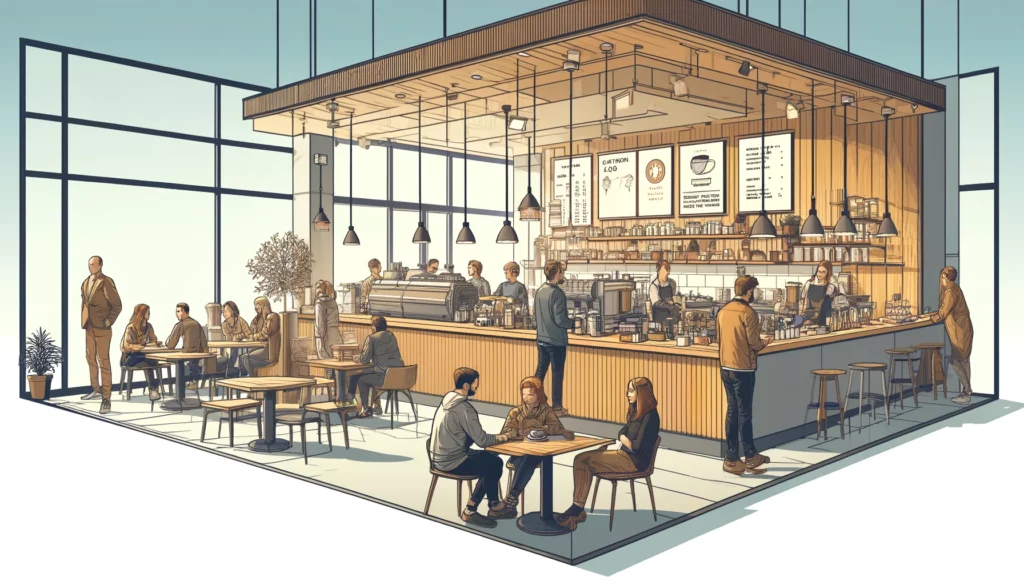Finns love their coffee. Per capita, people in Finland consume 12 kgs of coffee per year, making them the second largest per-capita coffee drinkers, only surpassed by Luxembourg. Finland also often ranks as the most technologically advanced country in the world. So, it only makes sense that they embrace a merger of the two — technology, and coffee.
Thus, an artisanal coffee shop in Helsinki, Finland, made news when they started selling an AI-formulated blend.
“We basically gave descriptions of all our coffee types and their flavours to AI and instructed it to create a new exciting blend,” said founder Svante Hampf while presenting “AI-conic” at the annual Helsinki Coffee Festival, according to The Associated Press.

AI-conic coffee
The AI program was fed information about what makes a good coffee blend. It was then asked to produce a new blend based on types of coffee already available at the roastery. The AI opted for a “somewhat weird” mixture, says Svante: it blended four different types of coffee, as opposed to the common two or three. It opted for a unique mix of beans from Brazil, Colombia, Ethiopia and Guatemala.
However, this unexpected decision resulted in a balanced blend of sweetness and fruitiness that was appreciated by the human experts at the event. In fact, after a blind tasting event, human experts agreed that the blend was perfect and no tweaking was necessary, according to The Associated Press.
Here we see yet another example of AI entering artisanal markets. Just a few weeks ago, brewers in Belgium made the world’s first AI beer, and other companies are already using AI to classify wines and write taste descriptions. Is this a marketing gimmick? Probably. But does AI actually have a role to play in artisanal products? Also, very probably.
“This (trial) was the first step in seeing how AI could help us in the future,” Hampf said, adding that the project blended “the artisan skills of a roastery” and AI-provided data. “I think AI has plenty to offer us in the long run. We are particularly impressed of the coffee taste descriptions it created.”
AI can make coffee better

When coffee experts want to come up with new blends, it’s generally trial and error. Experience and preference contribute heavily, but there’s a lot of experimenting as well. And, with over 200 major bean varieties worldwide, there’s a lot of experimenting to be done. In 2023, researchers at the Fraunhofer Institute in Germany reviewed existing algorithms for creating blends, showing that they do have great potential, and not just for creating new and exciting flavors but also when it comes to cost effectiveness. Cost is a variable that can be introduced into the mix.
But there are even more ways in which coffee and AI can mix.
For instance, AI can suggest new ways to roast different blends of coffee, as roasting can significantly affect the flavor, acidity, and body of the coffee. By analyzing data from past roasts, AI can predict how slight variations in temperature and timing could enhance specific characteristics of the beans. This could lead to more consistent quality and potentially unlock flavors that traditional roasting methods might miss.
Researchers have also developed ways to use AI and spectroscopy to detect whether coffee blends are authentic or not and even to predict the taste and quality of existing blends.
All in all, the application of AI in the coffee industry can make blending and roasting more precise and adaptable. Traditionally, these processes rely heavily on the roaster’s expertise and intuition, which, while invaluable, can vary from batch to batch. AI, on the other hand, can continuously learn and adapt from each roasting session, applying its growing database of information to refine and perfect the process.
“AI-conic” coffee is just the tip of the iceberg. Using AI to make coffee might sound like a futuristic indulgence, yet it’s rooted in practicality. Soon, our morning brew may be better thanks to it.









